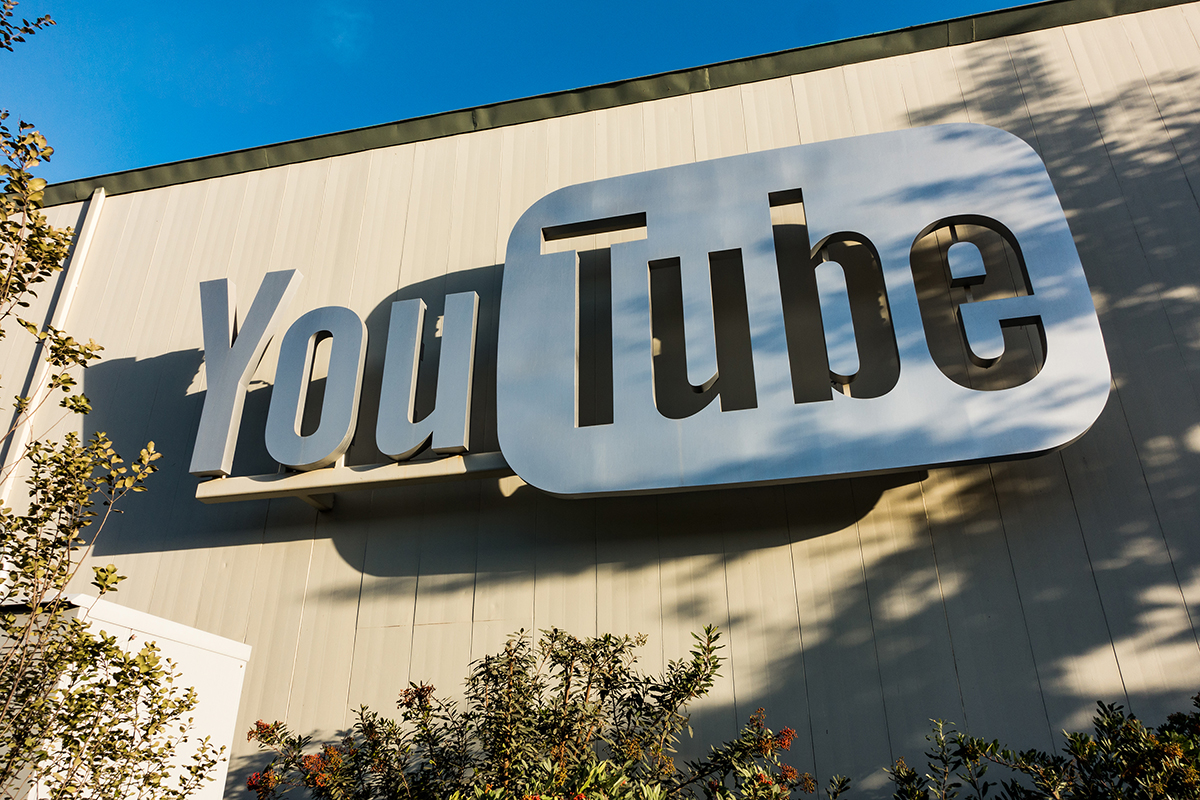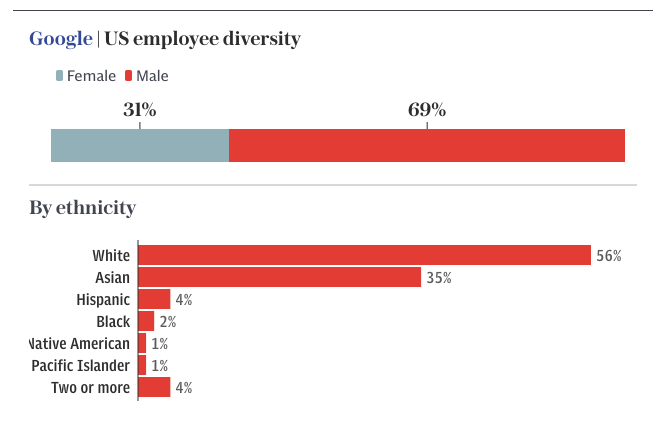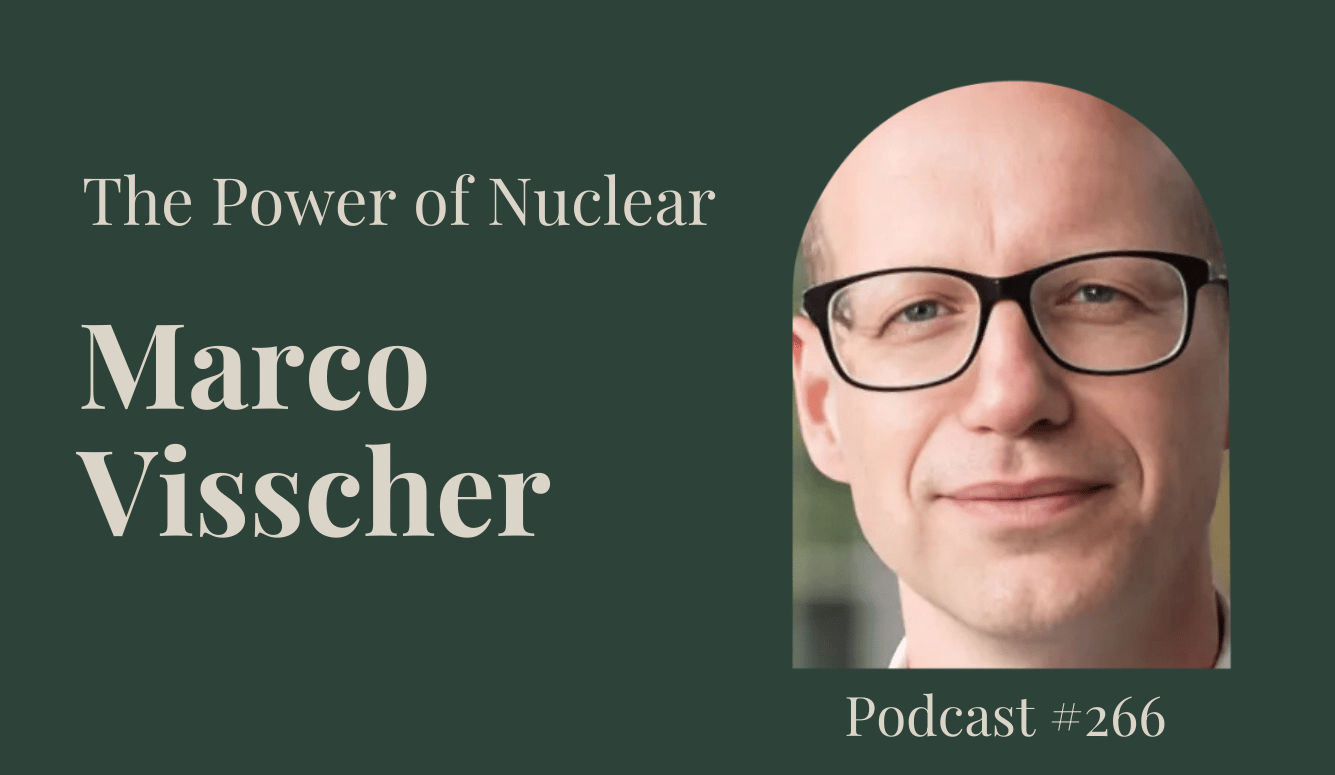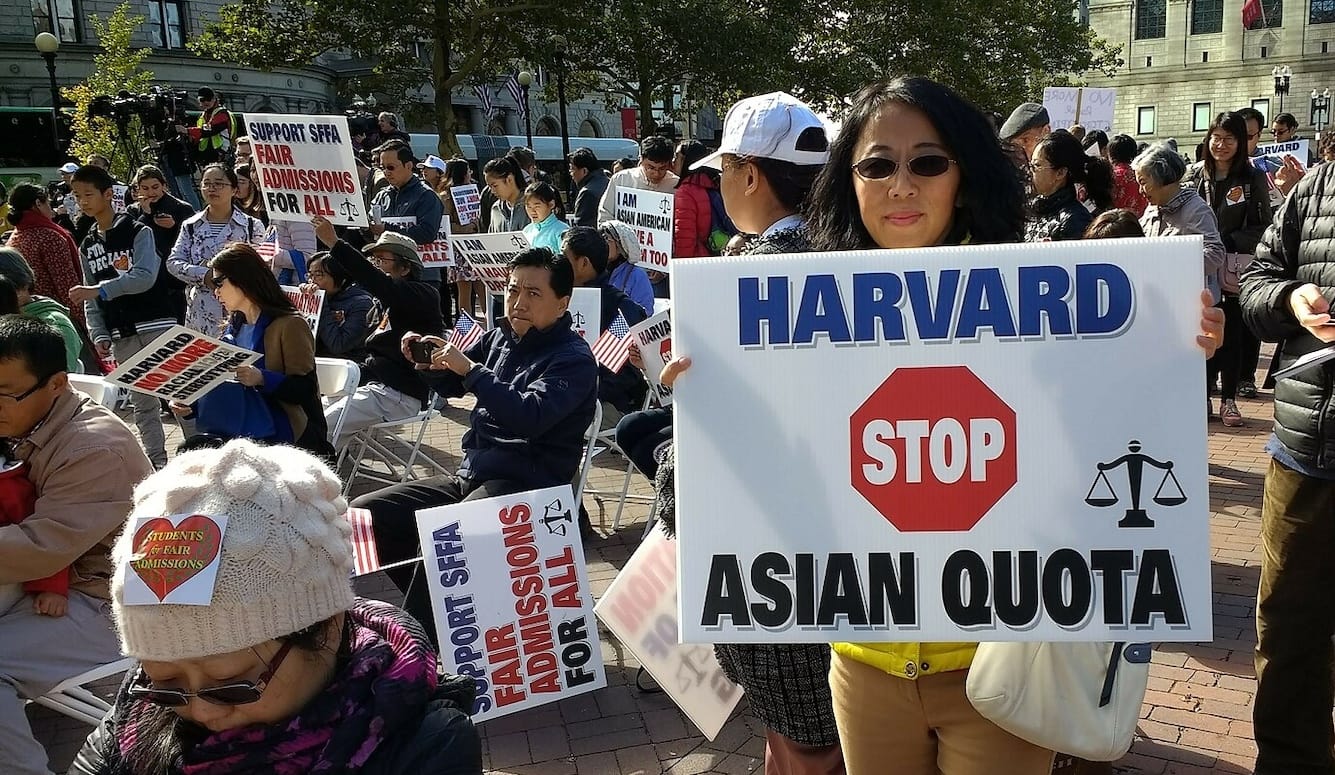Silicon Valley and the ABCs of Diversity
In the first scenario, it’s sensible to take the widest array of objects. Who knows which object is valuable or why?

When discussing diversity, the loudest voices are the ones which treat diversity as intrinsically valuable. Diversity is viewed as something of which more is always better, an idea flying in the face of our intuitions and best practice. And when it comes to diversity among people, diversity of skills and knowledge is often conflated with demographic diversity. We can watch these debates unfold live at Alphabet Inc. subsidiaries like Google and YouTube, as Google faces a lawsuit and YouTube stands accused of severe discrimination against White and Asian males.
First, let’s run through a thought experiment just to get the principles down:
- You’re in an alien museum, on an alien world. You can only save 100 items. You do not know anything about the items, or the world, except what you might be able to infer by looking at them. How do you determine what to take?
- You’re in a museum on Earth, in a country that’s very foreign to you. You can only save 100 items. You do not know anything about the items, except what you might be able to infer by looking at them. How do you determine what to take?
- You’re in a museum on Earth, in your own country. You can only save 100 items. You do not know anything about the items, except what you can infer by looking at them and what you can read about them. How do you determine what to take?
In the first scenario, it’s sensible to take the widest array of objects. Who knows which object is valuable or why? You should take objects of different shapes, sizes, colours, materials, exhibits, ones protected behind glass, ones on display, and ones hidden away.
In the second scenario, it’s sensible to take only those things you don’t recognise from home; there’s little to be learned from objects you already know about. You may still want an array of different items, but you’ll constrain your choices. You should take things you’ve never seen before and things that are positioned as if they are highly valuable.
In the last scenario, you should only take those items you know to be valuable. You might debate about whether you find an item personally valuable, but you know exactly what historians and the museum consider the most valuable and you know what the items are if you read the signs. You can safely ignore whole exhibitions if you like, because you know what’s in them and it’s easy to tell whether it’s worth a spot in the top 100 items to save.
Each scenario demonstrates the more you know about the system you’re in, the more focussed your conservation efforts become. You value diversity most when you don’t know what’s valuable. These scenarios apply to more than just our own reasoning. Nature follows suit, depending on the level of analysis.
At the broadest view, nature is immensely diverse and that diversity is an attempt to insure against unknown future dangers. In the beginning, a single-celled organism tried to replicate faster than it was destroyed. The winning strategy was to replicate rapidly, with great diversity. At the level of individual species, nature selects specialisation over diversity: better to have one well-adapted, highly successful group of organisms than to keep mixing things up. The more you know about the system you’re in, the more focussed your efforts are. This principle, reflected in our intuitions and in nature, applies to the current debates about workplace diversity.
Entrepreneurship occurs in highly-creative landscapes full of unknowns and opportunity. Silicon Valley was a highly-creative landscape full of massive unknowns and plenty of opportunity. So, Silicon Valley attracted a reasonably diverse range of people. Within Silicon Valley we found a common theme of individual traits: highly intelligent, technology focussed, creative, industrious people. But aside from those prerequisites, and perhaps personal wealth, the scene was as diverse as it could be, and few other traits mattered because nobody quite knew who or what would be the next one to succeed. Now Silicon Valley contains giant names that have been incredibly successful, each fulfilling a niche role, and each specialising to a greater degree. Because the giants of Silicon Valley are moving deeper into specialisation, diversity should matter a lot less.

Source: The Daily Telegraph
Total homogeneity is bad strategy for dealing with future, unknown problems, and total heterogeneity is useless when you need to entrench features and specialise. Currently, the cultural support for diversity is oriented as if specialisation is possible while everyone is working differently and in different directions; support is oriented as if diversity is good for its own sake. This is considered so true and so important that YouTube now stands accused of refusing to interview or hire white and Asian males, in a lawsuit filed by former employee Arne Wilberg.
As the Wall Street Journal reported:
The lawsuit, filed by Arne Wilberg, a white male who worked at Google for nine years, including four years as a recruiter at YouTube, alleges the division of Alphabet Inc.’s Google set quotas for hiring minorities. Last spring, YouTube recruiters were allegedly instructed to cancel interviews with applicants who weren’t female, black or Hispanic, and to “purge entirely” the applications of people who didn’t fit those categories, the lawsuit claims.
A spokesperson (described as a spokesman by the Telegraph and as a spokeswoman by the WSJ) for Google was quoted as follows:
“We have a clear policy to hire candidates based on their merit, not their identity,” she said in a statement. “At the same time, we unapologetically try to find a diverse pool of qualified candidates for open roles, as this helps us hire the best people, improve our culture, and build better products.”

Significant diversity differences in demographic representation likely won’t occur in highly competitive and specialised fields that exist in one location. People who can work more than 40 hours per week, striving towards a singular passion, for years, are not ordinary – they are extremes. Just as people who can happily spend their professional life caring for others are also extremes, most people can’t cope with that lifestyle. Extremes of the population are not representative of the population. In a workplace that is free from bias towards a given demographic, we should expect to see homogeneity in traits and demographics which correlate with those traits, and heterogeneity among those demographics which don’t strongly correlate with traits. Such an outcome would rarely be representative of society. This is what we see in Scandinavia, where, as best as is currently possible in real-world conditions, other than ability and personal traits, all else has been held equal.
Scandinavia has the same traditional gender-roles as other countries, but minimal wage-differences and a good social status for traditionally female occupations dissuades non-traditional choices. Traditional choices became traditional because they were modelled after the typical self-selection of males and females, over time, into the roles their skills best suit. Limiting all females to typically self-selected female roles, like nursing, was harmful to them and inefficient for society. Similarly, over-encouraging females into any other role that they wouldn’t self-select into today is just as bad. Historically, women were discouraged (or disallowed) from engineering because women don’t do that sort of work. Today, women are encouraged to become engineers because women typically don’t do that sort of work. Both strategies are terrible.
If hiring for maximal diversity during times of specialisation is suboptimal for a company, why would it hire with a bias towards diversity? The principles still apply: when you don’t know what to value, you value diversity. The less you know about the system you’re in, the less focussed your efforts become. Corporations are dealing with large unknowns in the socio-political sphere and new selection pressures are at play, so they’re hiring for diversity to insure against those threats. If consumerism becomes even more politicised, or legislation changes, it’s too costly to be behind the times. Some corporations have backed the diversity movement to carve out a niche inside it (pop-feminist media, virtue signalling companies, etc.); others are changing in response to new selection pressures in their niche (Google, Twitter, etc.).
Affirmative action, artificial quotas, and any biased intervention ensures that people stop self-selecting into what they can excel at and start selecting into what they can benefit most from. So, instead of tooling the market to reward people for how much they can benefit society, we are slowly corrupting the market to reward people to the extent they find an arbitrary gap to fill. The trend towards maximising diversity is causing a misalignment to develop between what benefits individuals and what benefits society. In a free, equal, and efficient society, the only things that matter are the things that determine how well a person can do their specific job. Everything else about them is irrelevant.











